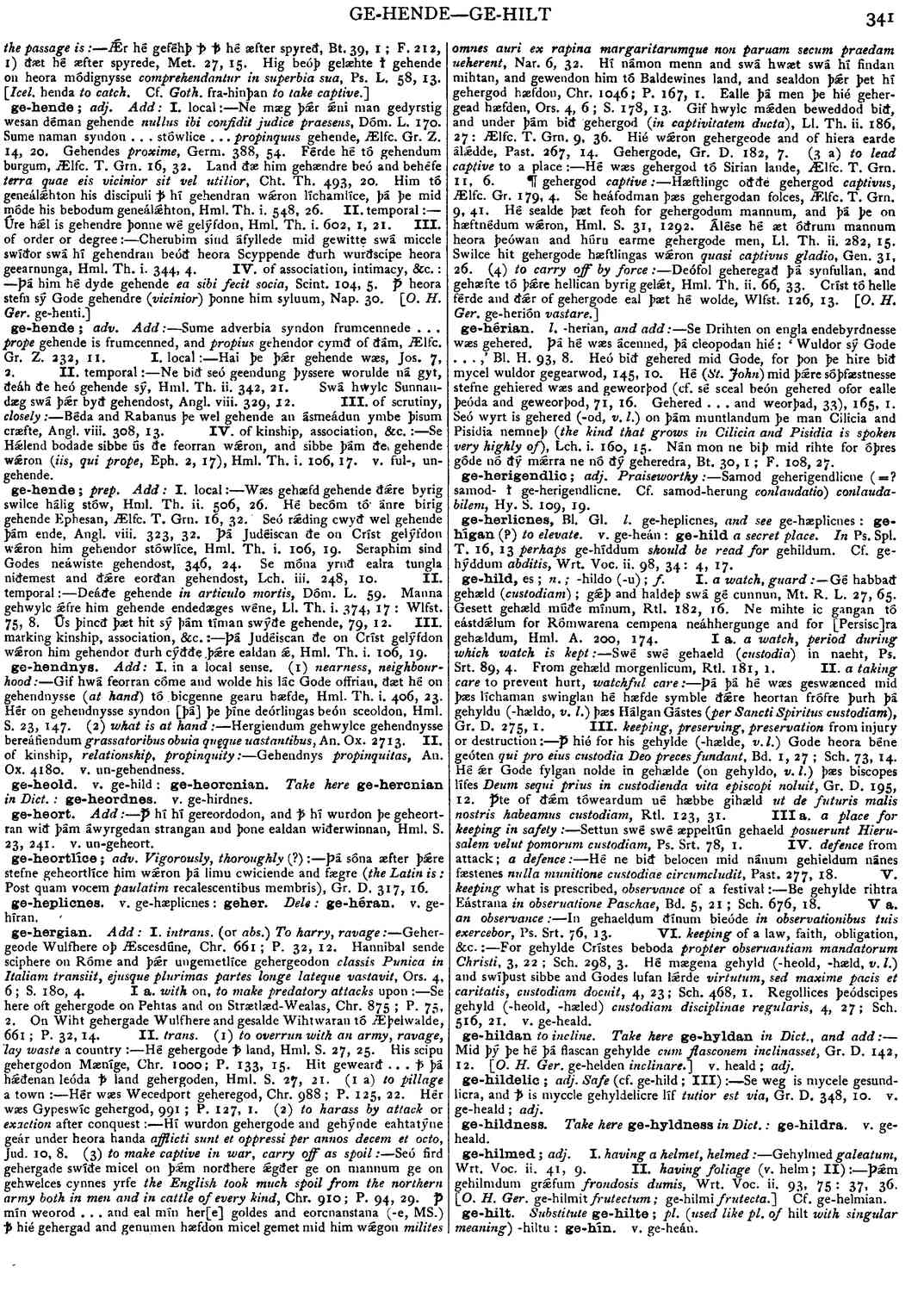ge-hende
- adjective
-
Ne mæg þǽr ǽni man gedyrstig wesan déman gehende
nullus ibi confidit judice praesens
,- Dóm. L. 170.
-
Sume naman syndon . . . stówlice . . .
propinquus
gehende,- Ælfc. Gr. Z. 14, 20.
-
Gehendes
proxime
,- Germ. 388, 54.
-
Férde hé tó gehendum burgum,
- Ælfc. T. Grn. 16, 32.
-
Land ðæ him gehændre beó and behéfe
terra quae eis vicinior sit vel utilior
,- Cht. Th. 493, 20.
-
Him tó geneálǽhton his discipuli ꝥ hí gehendran wǽron líchamlíce, þá þe mid móde his bebodum geneálǽhton,
- Hml. Th. i. 548, 26.
-
Úre hǽl is gehendre þonne wé gelýfdon,
- Hml. Th. i. 602, 1, 21.
-
Cherubim sind áfyllede mid gewitte swá miccle swíðor swá hí gehendran beóð heora Scyppende ðurh wurðscipe heora geearnunga,
- Hml, Th. i. 344, 4.
-
Þaacute; him hé dyde gehende
ea sibi fecit socia,
- Scint. 104, 5.
-
heora stefn sý Gode gehendre (vicinior) þonne him syluum,
- Nap. 30.
Bosworth, Joseph. “ge-hende.” In An Anglo-Saxon Dictionary Online, edited by Thomas Northcote Toller, Christ Sean, and Ondřej Tichy. Prague: Faculty of Arts, Charles University, 2014. https://bosworthtoller.com/48272.
Checked: 0